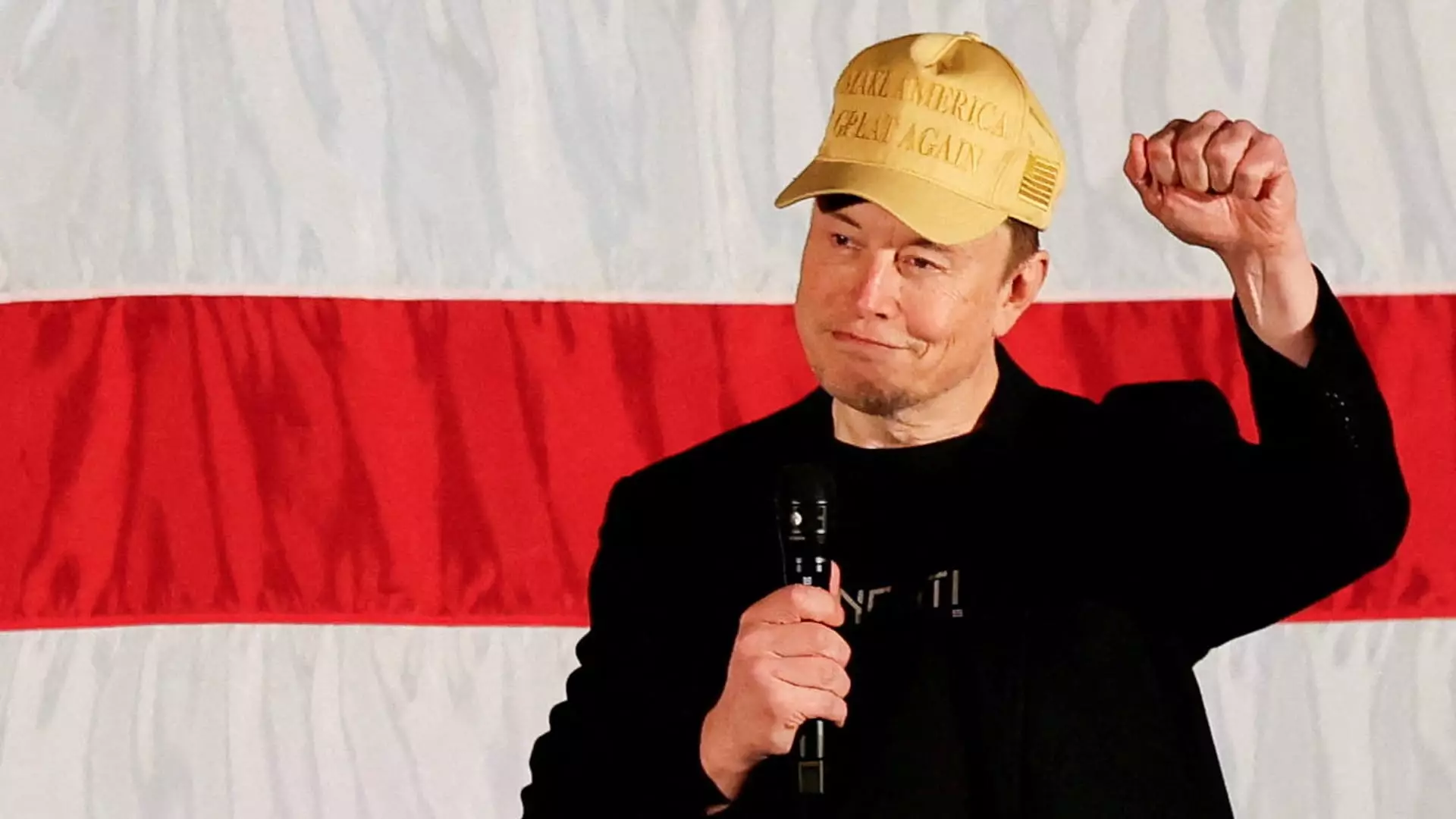In a controversial move that has sparked significant debate, Elon Musk recently announced that he would award $1 million daily to registered voters who sign a petition supporting his pro-Trump political action committee. This initiative, aimed at mobilizing voters in swing states ahead of the upcoming elections, raises questions about the ethics of incentivizing voter participation and potentially breaching federal election laws. His announcement during an America PAC event in Harrisburg, Pennsylvania, has set the stage for a potential clash between innovative campaign strategies and legal regulations designed to ensure fair electoral practices.
Musk introduced his idea amidst much fanfare, declaring, “I have a surprise for you,” and proceeded to present a symbolic check to a petition signer, John Dreher. This display, intended to emphasize the novelty and excitement of his initiative, perhaps overlooked the gravity of what his offer entails. Musk’s proposition invites registered voters from key states such as Arizona, Georgia, and Pennsylvania to engage with the petition as a means of not only supporting a political cause but also having the chance to gain a substantial financial reward. The deadline for signing the petition coincides with the close of Pennsylvania’s voter registration, intensifying the urgency surrounding this initiative.
A critical analysis of Musk’s proposal reveals potential violations of federal election laws, particularly regarding the ethics of offering financial incentives for voter registration and participation. Rick Hasen, a respected law professor and election law analyst, warned of the serious implications involved in Musk’s initiative, stating that such actions could be construed as a form of vote buying—a practice expressly prohibited to maintain the integrity of the electoral process. The law clearly delineates that using financial incentives to influence voting behavior undermines the fundamental principles of democracy, establishing a framework where wealth could distort political outcomes in favor of those who can afford to pay for votes.
The response to Musk’s proposal has been deeply polarized, reflecting broader national sentiments about wealth, power, and politics. Pennsylvania’s Democratic Governor, Josh Shapiro, expressed profound concern regarding Musk’s financial offer, indicating it could warrant further investigation by law enforcement. This sentiment aligns with what many view as a troubling trend: the increasing intertwining of financial resources with political influence. Meanwhile, supporters of Musk’s initiatives may see them as an unconventional yet engaging method to boost political engagement among the electorate.
Elon Musk is no stranger to controversy. His frequent critiques of government regulations and public institutions establish a narrative of an entrepreneur challenging the status quo. This event is not Musk’s first foray into political discourse; he has previously espoused views that align closely with the far-right, promoting themes of deregulation and voicing skepticism towards federal authority. His outspoken nature has positioned him as both a champion of innovation and a divisive figure. Musk’s recent comments during the event, where he bizarrely remarked on the perceived safety of public figures like Kamala Harris, indicate a troubling tendency toward irresponsible rhetoric that merits scrutiny.
Reactions to Musk’s million-dollar challenge will likely vary widely among the public. For some, it represents an enticing opportunity to participate in political activism while potentially benefitting financially. For others, however, it epitomizes a worrying trend where financial incentives can overshadow civic duty and ethical voting practices. The underlying implication is clear: when prominent figures leverage their wealth to influence political behavior, they risk commodifying what should be an intrinsic democratic process. The political landscape could shift if such strategies gain traction, fundamentally altering how citizens engage with their government.
Elon Musk’s announcement of a daily financial reward for voter engagement blurs the lines between innovation in political campaigning and ethical governance. While his intentions may be to invigorate voter participation in critical battleground states, the potential legal ramifications and ethical concerns surrounding such practices cannot be understated. As the landscape of electoral campaigning continues to evolve, it remains crucial for society to uphold the sanctity of the democratic process, ensuring that discussions around voting remain rooted in integrity rather than financial gain. The outcome of this initiative will likely influence future political practices, making it a significant point of observation as we approach the election season.

